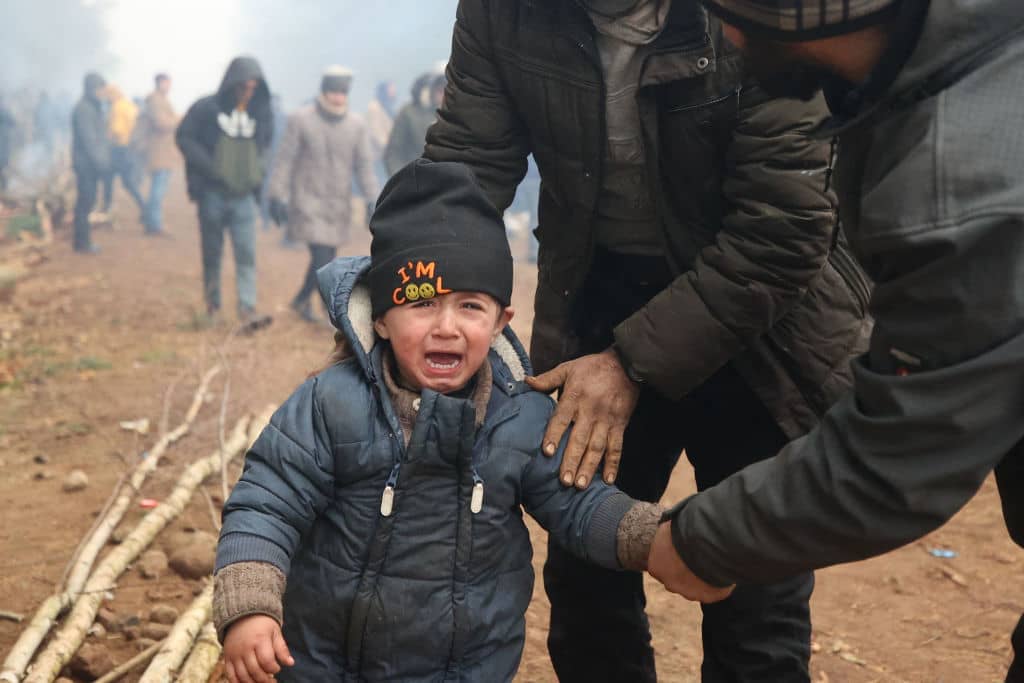At the border of Belarus and Poland, camps of migrants wait for a chance to cross the border into the EU. Groups attempt to break down the razor wire fences standing in their way, Some 15,000 Polish soldiers stand ready to stop them. Belarusian soldiers urge them on and offer assistance. The Belarusian state shuttles more migrants towards the border by the day, hands out wire-cutters, and prevents them from turning back. Some 30,000 migrants have attempted to cross into Poland since August. That number is swelling by the day, with Belarus now running dozens of flights every week ferrying further desperate people to Europe’s eastern border.
It is customary for cartoonish villains to give a lengthy and discursive speech where they lay out in detail exactly what they plan to do so that the hero can take notes and foil them. Minsk did its part. Lukashenko told the world in May that Belarus would flood the EU with ‘migrants and drugs’, and then he did it. A flow of migrants through Belarus to Lithuania that had previously been a trickle – 46 in 2019 – became a flood, with thousands of migrants, many without papers, crossing the border.
As the migrants continued to arrive, he told us precisely what would happen next:
With Europe’s enemies willing to use its welcoming nature to undermine it, a revision of refugee policy is badly needed
‘We will not hold anyone back. We are not their final destination after all. They are headed to enlightened, warm, cozy Europe.’
Enlightened, warm, cozy Europe, for its part, seemed happy enough to leave its Eastern border to face the brunt at first, just as it did the Mediterranean in 2015. Blame for the current situation lies with Lukashenko and his puppet-master Putin, but a share of responsibility lies also with the West.
The current crisis is the result of hybrid warfare undertaken against the West by hostile powers, but also an extended unwillingness to confront an issue of fundamental importance. While Poland works to defend its borders, the UN criticises Warsaw for pushing migrants back into Belarus: the United Nations High Commissioner for Refugees (UNHCR) has said Poland is in breach of international law for trying to force migrants back into Belarus instead of offering them asylum.
What the West learned from 2015 was that it could, in the end, muddle through: payments to Turkey, and the willingness of Angela Merkel to take in vast numbers (‘wir schaffen das’) saw the crisis averted. What Russia learned was that, forced into a decision between principles and reality, Europe might just break. And there should be no doubt that Russia is the driving force behind this crisis; Putin can insist it’s not his problem all he likes, but the world knows it’s his hand moving Lukashenko’s mouth.
Russia, through its proxy, hopes once again to turn Europe’s compassion into a weakness. Stirring tensions between states on the frontline who have to deal with the consequences of migrant flows, and those further back who stand by principles of openness, and within societies that find themselves facing the sudden arrival and challenge of integrating huge numbers of people.
This state of affairs is complicated by the delicate question of precisely who these refugees are. While images of women and children dominate media coverage, those able to make the long and dangerous journey to the West are likely to be predominantly young men. The groups flown in by Minsk are no different. Not every paperless arrival is necessarily a refugee looking for shelter; former Belarusian ambassador Pavel Latushka has accused Minsk and Moscow of training Afghan and Iraqi veterans to undertake operations on the European side of the border, mingling them in with legitimate refugees.
With Europe’s enemies willing to use its welcoming nature to undermine it, a revision of refugee policy is badly needed. Our commitments were made without considering the potential for rogue states to use migration to stoke domestic and international tensions, or the sheer scale and frequency of population movements that might occur in the future.
Without the moral clarity that would enable it to say ‘no more’, Europe finds itself caught between its laudable principle of wishing to give refuge, and the reality that there are so many more people in need of assistance than it can realistically take. Putin and Lukashenko are targeting this bind perfectly, playing on the fears of Central European countries. Innocent people can be weapons, if there are enough of them.







Comments